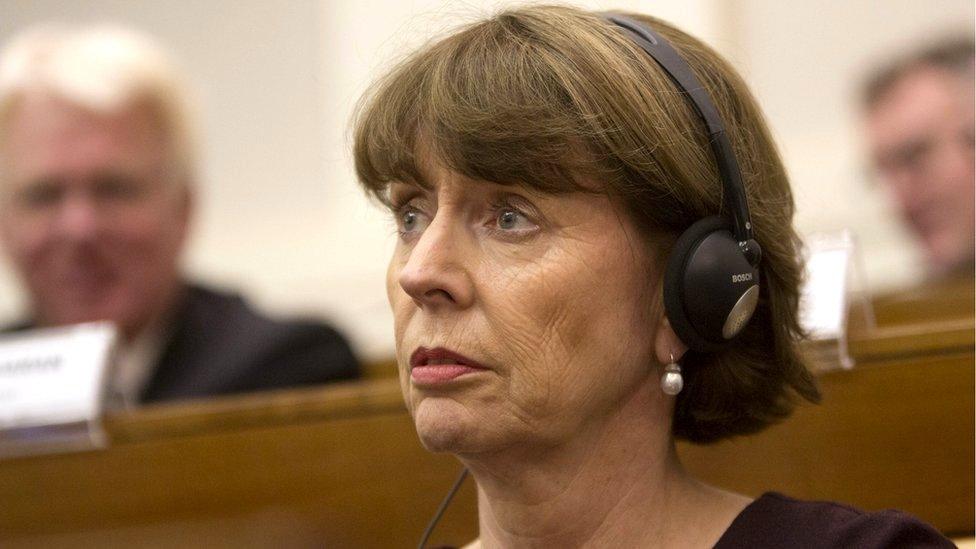German politician's murder raises spectre of far-right attacks
- Published
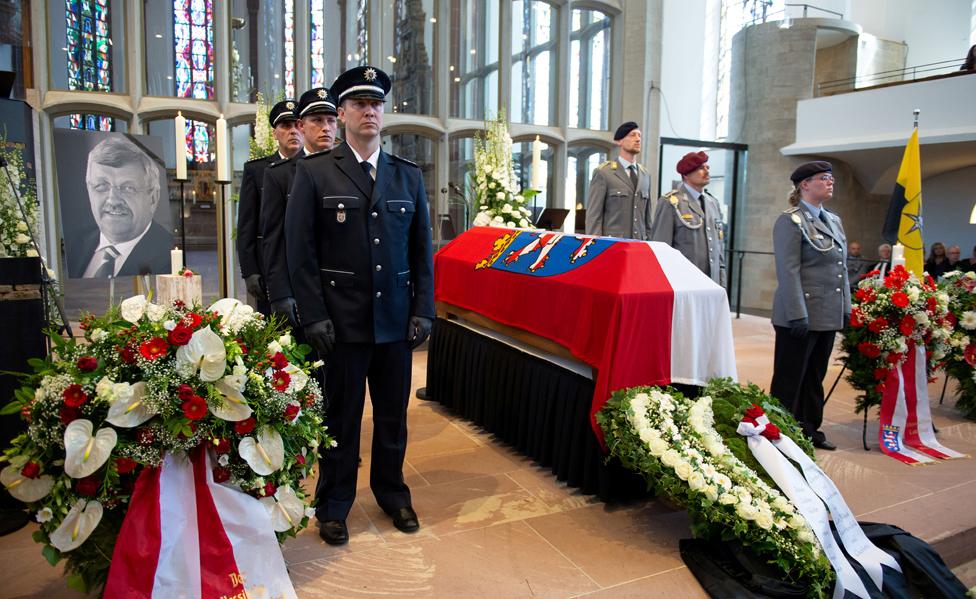
Lübcke's funeral took place in Kassel on 13 June
Walter Lübcke knew how it felt to receive death threats. A senior politician from Angela Merkel's CDU party in Hesse, the 65-year-old was well known in the region for his liberal attitude towards people seeking asylum.
His stance earned him respect and admiration during the refugee crisis, but it also made him the target of a hate campaign.
And, investigators believe, it may have cost him his life.
Lübcke was found just after midnight on 2 June, reportedly by his son, as he lay unconscious and badly injured on the terrace of his own home in the sleepy village of Istha, in central Germany.
He had been shot in the head at close range and died shortly afterwards in hospital.
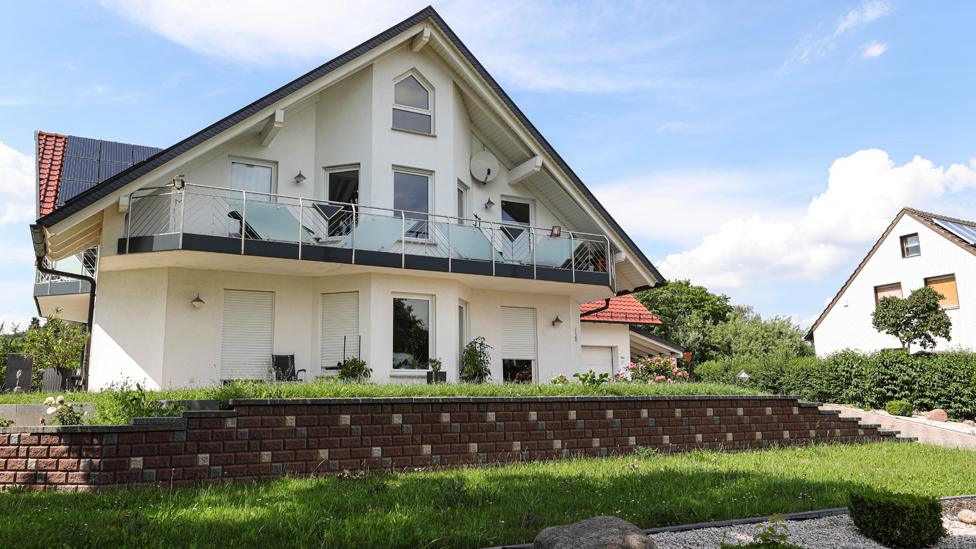
Lübcke was found shot in the head on the terrace of his home (pictured)
Even as mourners gathered for the funeral of a man who had passionately defended the right of refugees to a home in Germany, extremists openly celebrated his murder online.
He had headed the Kassel district government.
His violent death has shattered the peaceful rural village and horrified Germany, not least because detectives believe that this was a politically motivated assassination, planned and perpetrated by a right-wing extremist who, it's feared, may not have acted alone.
They have identified Stephan Ernst, 45, as their main suspect. He is known to have had links to neo-Nazi networks and investigators are exploring a possible connection to the notorious NSU (National Socialist Underground) - an extremist group which shot dead 10 people, most of whom had migrant backgrounds, between 2000 and 2007.
Police say that Ernst's DNA was found on the victim's clothing and matched a sample held on police file after he was convicted of the attempted bombing of a refugee home in the 1990s. He is said to have lived in Kassel for some years, where neighbours described him as quiet and friendly.
As investigators outlined their case against him, they explained that he had kept a low profile for some time and admitted that it was almost impossible to monitor every suspected extremist.
According to government figures, there are 24,000 right-wing extremists in Germany. Nearly 13,000 are believed to have a tendency to violence.
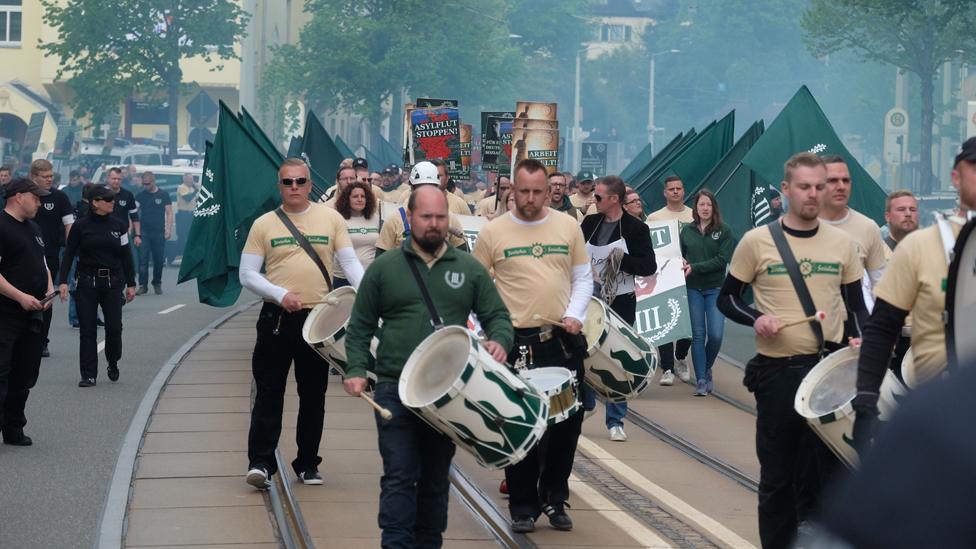
A march in Plauen by The Third Path - one of the new far-right groups in Germany
It's a painful reckoning for Germany, a country whose history means that, for the majority, the existence of the political far right - let alone extremist neo-Nazi networks - is a source of great shame.
Mayors targeted
President Frank-Walter Steinmeier demanded a swift conclusion to the Lübcke case, as it emerged that the mayors of Cologne and Altena had received death threats in the past week.
Both Henriette Reker and Andreas Hollstein, well known for their liberal approach to asylum policy, have survived assassination attempts in recent years.
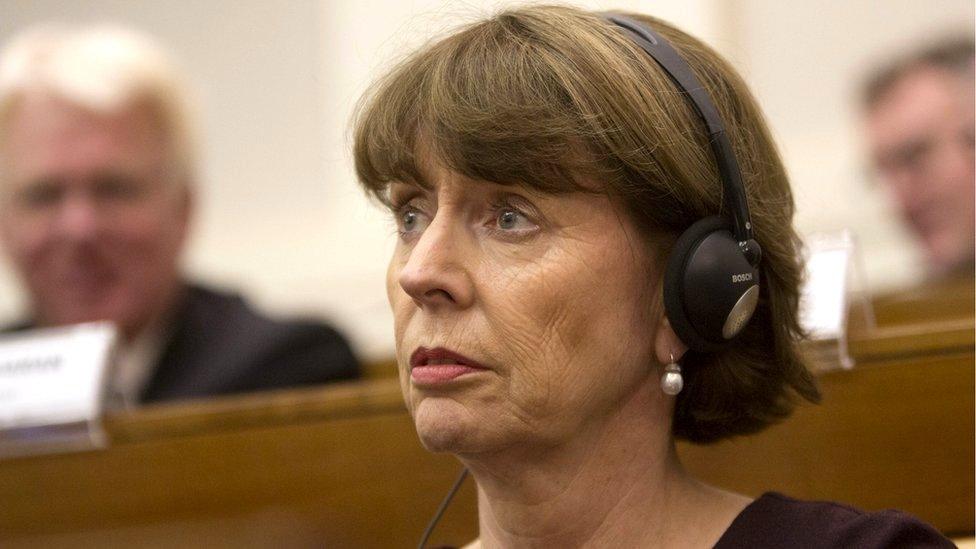
Cologne's Mayor Reker, seen here attending a 2016 refugee summit at Vatican City, has been attacked before
German Interior Minister Horst Seehofer describes the case as an alarm bell.
Commentators say that the recent focus on the threat of Islamist terror has led authorities to overlook right-wing networks, which have gained a new momentum in response to the refugee crisis of 2015.
Chemnitz flare-up
Social media plays a role too, as was seen recently in the eastern city of Chemnitz.
After the killing of a German-Cuban man in the city, allegedly by a Syrian and an Iraqi, police were taken aback at how swiftly extremists mobilised a large group, who thronged the city centre and "hunted down" people of foreign appearance.
Rival protests between far-right and anti-Nazi activists in Germany
How the authorities deal with the threat will be closely watched.
It's a decade since the NSU carried out their campaign. The authorities were slow to respond then and it's thought that some of those who helped the group were never caught.
The president of Germany's Central Council of Jews, Josef Schuster, said this case would be "a test of whether this country has really learned something from the murders of the NSU". Already doubts are emerging as to whether Stephan Ernst was as dormant in recent years as authorities suggest.
Toxic language
In a country where the kind of rhetoric that was once taboo is now openly used - even in parliament - there is a debate over the impact of inflammatory language, with some blaming Germany's far-right AfD party (who were quick to condemn Lübcke's murder) for fostering a culture which encourages extremism.
The leader of Chancellor Angela Merkel's conservatives, Annegret Kramp-Karrenbauer, said "the loss of verbal boundaries, how the hatred and incitement is used by AfD and others, lower thresholds so far that they turn into pure violence".
Police say, as yet, they cannot be sure whether there is a connection between Lübcke's murder and the death threat received by Henriette Reker.
The mayor of Cologne is defiant. Lübcke's death, she tweeted, should "bring us together but not frighten us. For those who threaten our open and free society it must be clear that we do not retreat one centimetre".
- Published20 June 2019
